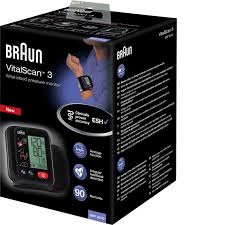As many as 16 million people in the UK have high blood pressure and five million of them may not even know it. So what’s the problem?
High blood pressure might not sound too scary, maybe just like a bit of extra tension, right? Wrong! The stats show that high blood pressure (HBP) is a pretty serious issue. People with HBP are three times more likely to develop heart and circulatory disease and stroke, along with high cholesterol and diabetes than those with normal readings. The only way to tell if you have HBP is to regularly have it checked regularly.
Blood pressure (BP) is exactly what it sounds like – the pressure of your blood in the arteries. Blood pressure is important, and you need a certain amount to carry the blood from your heart to your brain and the rest of your body. The pressure varies will vary depending on activity and will usual be highest during rigorous exercise.
Understanding numbers
BP readings have two levels, shown as one over the other, eg 120/80mmHg or 120 over 80. The top number shows the highest level your BP reaches as your heart contracts and pumps blood, this is the systolic pressure. The bottom figure shows the lowest level your BP reaches when your heart relaxes between beats – the diastolic pressure.
Everyone’s target BP varies, and you should have an initial BP reading performed by your doctor to find out yours. In general a reading below 140/90 would be see as healthy, although if you have a pre existing medical condition, you may need to aim for a lower reading.
Tackling the issue
Being diagnosed with HBP or hypertension means that your BP is constantly higher than the target level. If left untreated, your can become enlarged causing it to pump less effectively, which could lead to heart failure. So what can we do?
The first step to tackling the problem is diagnosing the cause. There isn’t always an explanation for HBP, family history for instance can cause HBP even in healthy, active folk. Generally speaking the following lifestyle factors can lead to HBP…
Not being active enough
Even exercising gently will keep the ticker in check.
Carrying extra baggage
If your trousers have been getting a bit tight, maybe hold off buying a new pair and try to slim back into them.
Being carefree with the seasoning
TV chefs may liberally sprinkle the salt over food, but try and leave the salt cellar in the cupboard. Look at more flavoursome ways to pep up your food like herbs, spices and citrus juice.
Knocking back the grog
Try and stick to the recommended alcohol guidelines of 21 units per week for men. Try and include a few glasses of red wine amongst these if you are drinking too, they may help have a positive effect on heart health.
Loving the lard
A high intake of saturated fats alongside an inactive lifestyle can put extra strain on the heart. A healthy balanced diet rich in fruit, vegetables, lean protein and wholegrains can help keep weight and check and boost your antioxidant intake.
Stay in control
Regular monitoring is the best way to keep an eye on your BP. Take reading while you’re taking it easy rather than after a bout of exercise or returning from the daily commute, as these won’t give the most representative results.
A simple wrist blood pressure monitor like the Braun VitalScan 3 (£39.99, boots.com) keeps monitoring easy. The compact device stores up to 90 readings and gives an average result shown on the previous 3 measurements, to give you a better overall picture. It detects irregular hearbeats too to give extra peace of mind.









